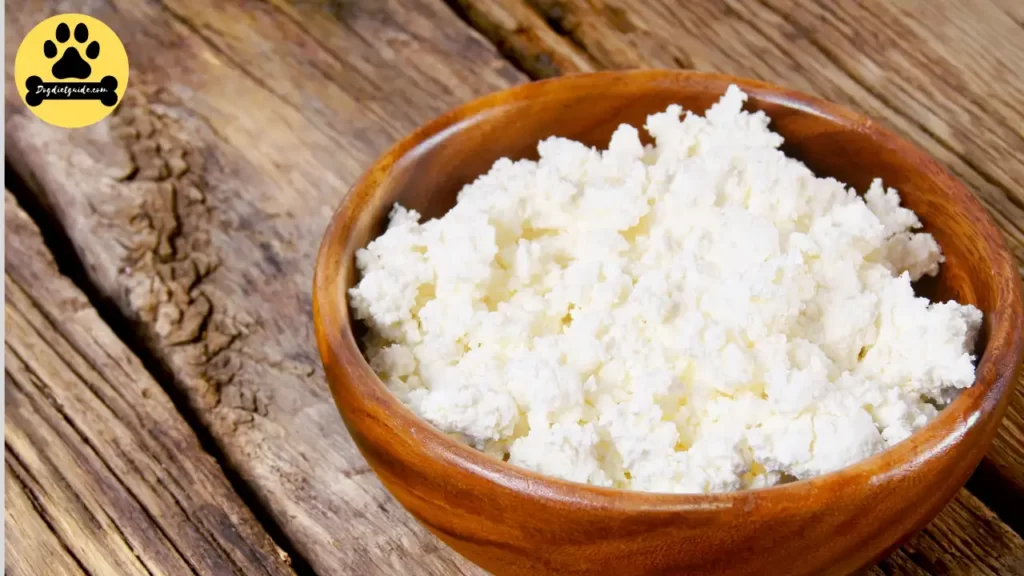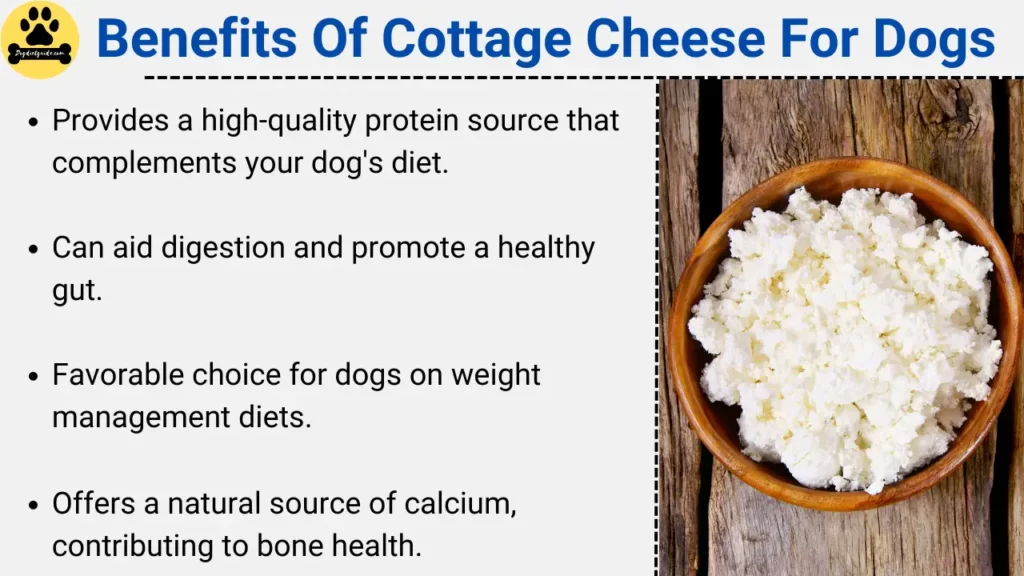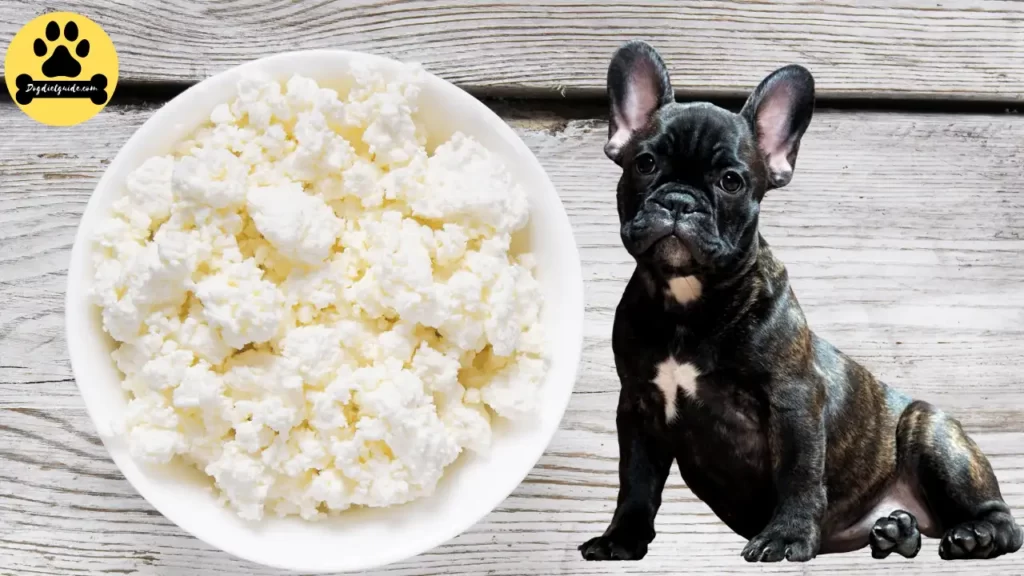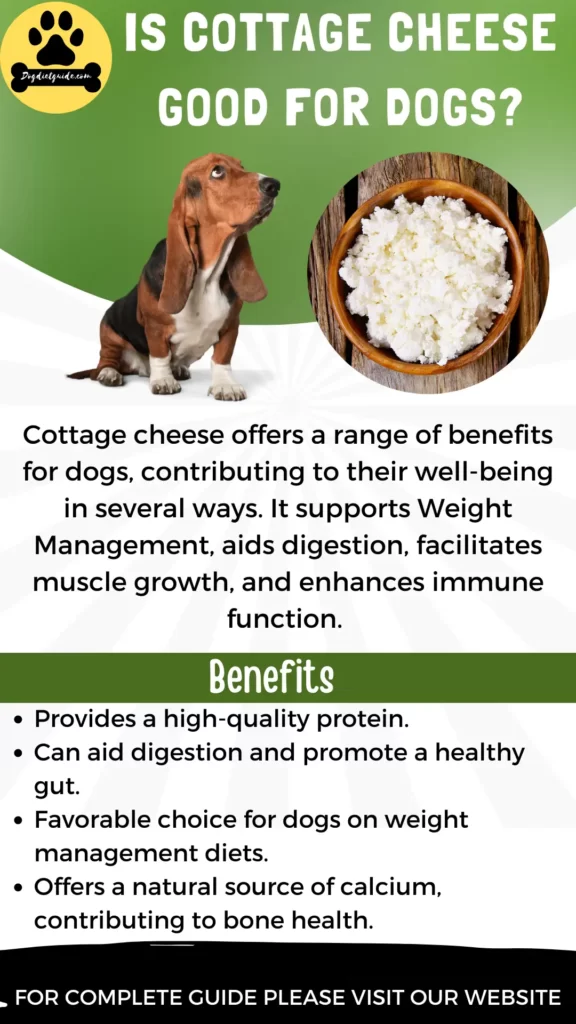When it comes to our beloved canine companions, we’re often meticulous about their diet, ensuring it aligns with their nutritional needs and supports their overall health. Among the many human foods we might consider sharing with our furry friends, cottage cheese often emerges as a potential option. But is cottage cheese good for dogs?
This question sparks debates among pet owners and veterinarians alike, prompting a closer examination of its benefits and potential drawbacks for our four-legged pals.
Is Cottage Cheese Good For Dogs?
Yes, among the various types of cheeses, cottage cheese stands out as a relatively safe option for dogs due to its low-fat content, typically hovering around 1% or even lower. Cottage cheese offers a range of benefits for dogs, contributing to their well-being in several ways. It supports Weight Management, aids digestion, facilitates muscle growth, and enhances immune function.
Furthermore, it promotes a healthy gut and contributes to optimal bone health, making it a valuable addition to your furry friend’s diet.
It’s important to emphasize moderation as a guiding principle when sharing cottage cheese with your canine companion.
It’s essential to exercise caution and refrain from offering cottage cheese to dogs with lactose intolerance or those prone to cheese allergies.
As with any new food, it’s important to introduce cottage cheese gradually and in small amounts to assess how your pet’s digestive system responds. Abrupt alterations in dietary intake can trigger disturbances within the gastrointestinal tract.
Nutritional Value of Cottage Cheese
Cottage cheese, a dairy delicacy brimming with nutrients, holds the potential to enhance your dietary regimen with its healthful attributes.
The extent of its nutritional potency hinges on factors like fat content and potential additives or flavorings that might be included.
Here is a general overview of the nutritional value of a typical low-fat cottage cheese per 100 grams (3.5 ounces):
-
Calories: Approximately 72 kcal
-
Protein: About 11 grams
-
Carbohydrates: Roughly 2.6 grams
-
Sugars: Approximately 2.6 grams
-
Fat: Around 1.6 grams
-
Saturated Fat: Approximately 1 gram
-
Fiber: Minimal, usually less than 1 gram
-
Calcium: Approximately 83 mg
-
Phosphorus: About 138 mg
-
Sodium: Roughly 364 mg
-
Potassium: Approximately 104 mg
-
Vitamin B12: About 0.4 µg
-
Riboflavin (Vitamin B2): Roughly 0.3 mg

Can Dogs Eat Cottage Cheese?
Yes, dogs can eat cottage cheese in moderation. However, there are a few important things to consider. Certain canines exhibit lactose intolerance, a condition wherein the digestion of lactose—a sugar present in milk and dairy items such as cottage cheese—poses challenges.
This predicament can result in gastrointestinal disturbances, encompassing symptoms like diarrhea and stomach unease.
Should you choose to introduce cottage cheese into your dog’s dietary repertoire, commencing with a modest portion and vigilantly observing their response is prudent.
Cottage cheese is a noteworthy reservoir of vital protein and calcium, integral elements for a well-rounded canine diet.
Protein is essential for muscle health, while calcium is crucial for bone and teeth health.
However, these nutrients should be balanced with the rest of your dog’s diet to avoid overloading them with excessive protein and calcium.
Option for low-fat or fat-free cottage cheese to avoid excessive calorie intake. Too much fat can lead to obesity and other health issues in dogs.
As with any new food, allergies or sensitivities can occur. Exercise prudence by attentively observing your dog for any unfavorable responses upon introducing cottage cheese to its diet.
While calcium is important for puppies, an imbalance between calcium and phosphorus in the diet can lead to skeletal problems, especially in large-breed puppies.
Cottage cheese is relatively high in calcium, so ensuring a balanced diet is important.
Before implementing substantial modifications to your dog’s dietary regimen, seeking counsel from a veterinarian is a prudent step. Their expertise enables them to offer tailored advice rooted in your dog’s unique health prerequisites.
Benefits Of Cottage Cheese For Dogs

-
Cottage cheese provides a high-quality protein source that complements your dog’s diet.
-
Can aid digestion and promote a healthy gut.
-
Favorable choice for dogs on weight management diets.
-
Offers a natural source of calcium, contributing to bone health.
Related Post: Can Dogs Eat Falafel?
How To introduce into your Dog’s Diet.
-
Choose plain, unsweetened, and unflavored cottage cheese.
-
Start with a small amount and observe your dog for any adverse reactions.
-
Chose low-fat or reduced-fat cheese to mitigate the risk of weight gain.
-
If your puppy is lactose intolerant, it’s best to avoid feeding cheese.
Is Cottage Cheese A Probiotic For Dogs?
Cottage cheese is not typically considered a probiotic for dogs, but it can be a source of beneficial bacteria and nutrients supporting their digestive health.
Cottage cheese, conversely, is a dairy product that contains some natural bacteria. Still, it is not specifically cultured or formulated to provide the diverse strains and concentrations of probiotics often found in probiotic supplements for dogs.
Is Cottage Cheese Good For Dogs With Diarrhea?
Cottage cheese is sometimes recommended as a bland and easily digestible food option for dogs with diarrhea. However, it’s important to note that every dog is unique, and what works for one may not work for another.
This variant of cheese is relatively mild and may be easier on the stomach than other foods, and its soft texture can relieve a dog’s irritated digestive system.
Furthermore, it boasts protein and calcium content, both of which can yield advantages.
Nevertheless, the key lies in gradually introducing any novel food and carefully observing your dog’s ensuing reaction.

How Much Cottage Cheese To Give A Dog For Diarrhea?
The amount of cottage cheese to give to a dog with diarrhea can vary depending on the dog’s size, age, and overall health.
It’s important to start with small portions and gradually increase if your dog tolerates it well.
Start the process by presenting your furry friend with a diminutive spoonful (equivalent to 1-2 tablespoons) of unflavored, low-fat cottage cheese. Ensure it contains no added sugars, flavorings, or additives.
Observe how your pup’s stomach reacts to the cottage cheese. You can gradually increase the portion over a day or two if there are no adverse reactions, such as increased diarrhea, vomiting, or other digestive upset.
Related Post: Can Dogs Have Miso Soup?
Cottage Cheese & Weight Gain In Dogs.
Cottage cheese can be a dietary supplement for canines and may sometimes help with weight gain.
Here are some points to consider regarding cottage cheese and weight gain in dogs:
Nutritional Content
Cottage cheese is a good source of protein and healthy fats, which can benefit canines’ weight gain.
Choosing plain, unsweetened, and low-sodium cheese is important to avoid unnecessary additives that could harm your furry friend.
Protein Intake
Protein is essential for muscle development and repair, especially for underweight dogs.
Cheese’s protein content can help promote muscle growth, but excessive protein intake can strain the kidneys.
It’s crucial to consult your veterinarian to determine the appropriate amount of cheese to add to your pet’s diet.
Caloric Intake
Weight gain occurs when pets consume more calories than they burn.
Cottage cheese is calorie-dense, which can contribute to increased caloric intake.
However, it’s essential to calculate your pup’s daily caloric needs and adjust their overall diet to ensure healthy weight gain without overloading them with calories.
Digestibility
Canines generally well-tolerated cottage cheese, but some individuals might have lactose intolerance or sensitivities.
If your puppy has digestive issues, avoiding dairy products like cheese is best. It should not be the sole source of nutrition.
Optimal canine well-being hinges on a well-rounded diet encompassing an array of top-tier protein sources, wholesome fats, carbohydrates, vitamins, and minerals, ensuring comprehensive nutritional nourishment.
Remember that the weight gain process should be deliberate and managed, as swift increases in weight can potentially give rise to health concerns. Monitoring your dog’s progress, adjusting their diet as needed, and providing regular exercise are essential components of a successful weight gain plan.
Which Dogs Should Not Eat Cottage Cheese?
-
Dogs with lactose intolerance may experience digestive issues if they consume cottage cheese.
-
Pets on low-sodium or low-fat diets should be cautious due to potential high sodium content and low-fat variations.
-
Monitor for allergic reactions when introducing cottage cheese.
-
Cottage cheese contains calories, so be mindful of portion sizes, especially for overweight canines.
FAQs
Is cottage cheese good for dogs with kidney disease?
Cottage cheese is often considered a good source of protein for dogs. Still, its suitability for a dog with kidney disease would depend on various factors, including the stage of the disease and the individual dog’s specific health needs.
In cases of kidney disease, the protein, phosphorus, and sodium content of the diet are typically of concern. Canines with kidney disease may require a diet lower in phosphorus and protein to help reduce the workload on the kidneys.
Cheese contains protein, phosphorus, and calcium, so it’s important to ensure that any dietary changes you make align with your veterinarian’s recommendations.
Is cottage cheese good for dogs with kidney pancreatitis?
Conditions such as kidney issues and pancreatitis may necessitate specialized dietary considerations, and a veterinarian, considering factors like your dog’s condition, age, size, and overall well-being, can prescribe the optimal diet tailored to their specific needs.
In some cases, low-fat, low-protein, and easily digestible foods might be recommended, but the specific recommendations can vary widely.
Is cottage cheese good for dogs with upset stomachs?
Cottage cheese is often considered a bland and easily digestible food that can benefit dogs with upset stomachs. It’s low in fat and generally well-tolerated by many dogs.
Final Thoughts: Is Cottage Cheese Good For Dogs?
Cottage cheese can indeed be a nutritious addition to your dog’s diet, offering a protein-packed snack that supports muscle growth, digestive health, and even weight management.
Deliberate upon your dog’s distinct dietary requisites and seek guidance from your veterinarian before embarking on any substantial modifications to their eating regimen.
With moderation and mindful incorporation, cottage cheese can be a wholesome treat contributing to your furry friend’s overall well-being.

References:




![Can Dogs Eat Blood? 7 Side Effects [Expert Opinion]](https://petskor.com/wp-content/uploads/2022/04/Webp.net-resizeimage-12.jpg)
